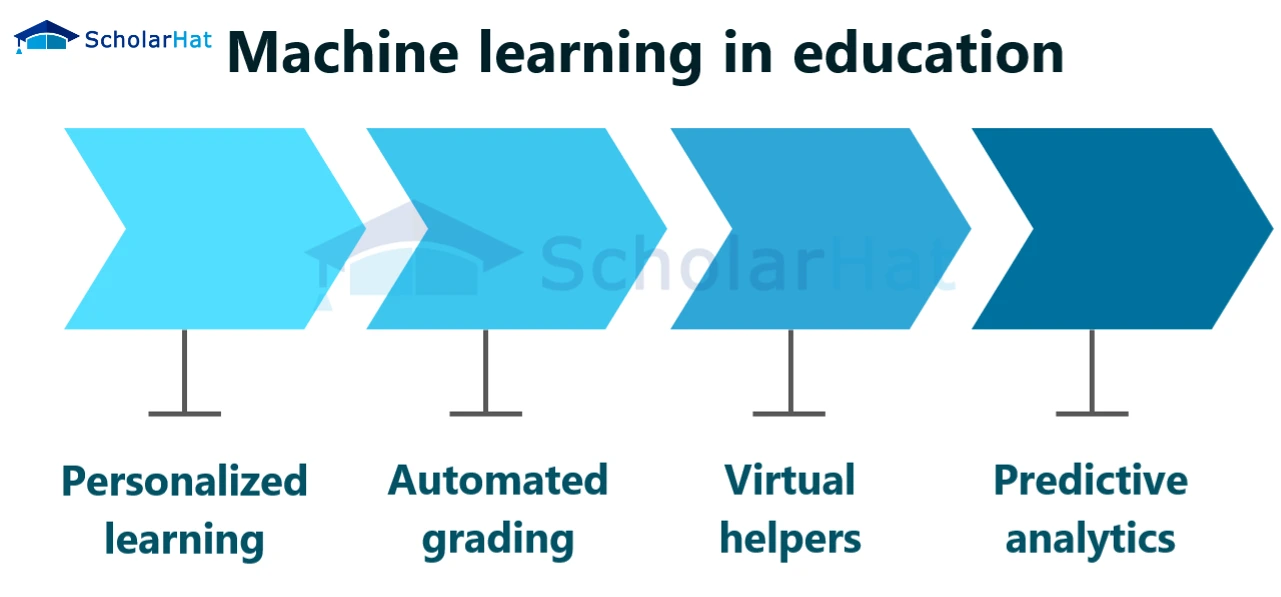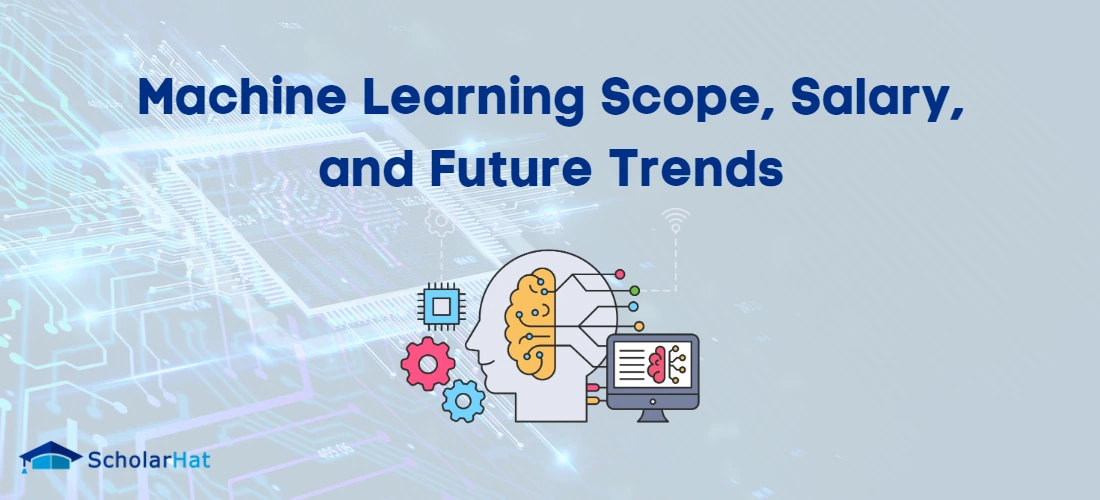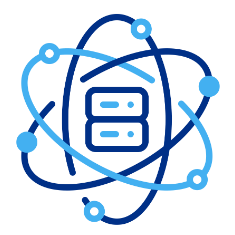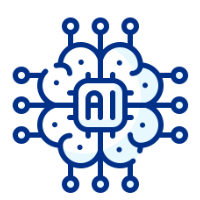18
AprMachine Learning Scope, Salary, and Future Trends
Introduction
Machine learning has become a disruptive technology with a wide application span across a variety of businesses and topics. Numerous industries, including banking, healthcare, manufacturing, retail, and transportation, have undergone radical change as a result of their ability to analyze enormous volumes of data, spot trends, and make precise forecasts. Organizations are becoming more aware of machine learning's potential for decision-making, automation, and optimization, which is why its application is growing.
Machine learning algorithms in finance are able to examine market trends, forecast stock values, and spot fraudulent activity. It can help with disease diagnostics, medication discovery, and personalized therapy in the healthcare industry. Machine learning in manufacturing may enhance quality assurance, decrease downtime, and optimize production processes. It allows for customized recommendations, demand forecasting, & inventory management in the retail industry. Machine learning helps the transportation and logistics industries by enhancing the efficiency of the supply chain, planning routes, and anticipating maintenance requirements.
As technology advances continue to push machine learning's boundaries, the field's future appears bright. A branch of machine learning known as deep learning has achieved outstanding results in audio, picture, and natural language processing as well as autonomous driving. Another subfield of reinforcement learning is opening the way towards intelligent robotics and automated systems that can learn and adapt in real-time settings. Machine learning has a greater potential impact when combined with other cutting-edge technologies like blockchain, augmented reality, and the Internet of Things (IoT).
Machine learning experts are in greater demand, which translates into promising compensation prospects. Data scientists, machine learning engineers, and AI researchers, for example, are in high demand and earn good wages. Although actual pay can vary depending on experience, education, and region, entry-level jobs. Professionals' earning potential greatly rises as they gain knowledge and expertise.
Machine learning scope
Machine learning has a broad range of applications across many different domains. The creation and application of algorithms and models known as "machine learning" enable computer systems to learn from data as well as make predictions or take actions without having to be explicitly programmed.
The following are some important areas that show the machine learning scope:
- supervised education: This entails using labeled data to train a model, where input data is mapped to corresponding output labels. To make predictions or categorize brand-new, untainted data, the model learns from this labeled data.
- Unsupervised Learning: Using this method, the model learns from data that has not yet been assigned any labels. The objective is to locate structures, correlations, or patterns in the data, such as grouping related data points together or identifying latent components.
- Reinforcement Learning: Reinforcement learning is a subfield of machine learning that focuses on teaching an agent to make decisions sequentially while interacting with its surroundings. In order to maximize its cumulative benefit over time, the agent attempts to maximize feedback in the form of rewards or penalties.
- Deep Learning: A branch of machine learning that makes use of multiple-layered artificial neural networks to model and learn complicated patterns and representations. It has excelled particularly in fields like speech recognition, natural language processing, and computer vision.
- Natural Language Processing (NLP): NLP is the process of developing algorithms and models to process and comprehend human language. It includes activities like language synthesis, analysis of sentiment, machine translation, question-answering, and text classification.
- Computer Vision: The goal of computer vision is to make it possible for computers to comprehend and analyse visual input, including pictures and movies. It involves activities like picture segmentation, object detection, facial recognition, and image classification.
- Systems that make suggestions to users: These systems use machine learning to make recommendations that are specific to each user. These algorithms are commonly employed in online services, content streaming platforms, and e-commerce to make product, movie, or music recommendations based on user behaviour and preferences.
- Time Series Analysis: Time series analysis analyzes information gathered over a period of time, such as market prices, weather information, or sensor measurements. Machine learning techniques can be used to model and predict future values, find anomalies, or glean valuable insights from time-varying data.
- Healthcare & Medicine: Machine learning has a substantial impact on medicine and healthcare, including patient monitoring, drug discovery, disease detection, and medical imaging analysis.
- Finance and Business: Machine learning is extensively employed in the finance and business industries for tasks like identifying fraud, scoring credit, trading algorithms, market estimation, customer segmentation, and demand forecasting.
Machine learning engineer salary
Engineers in machine learning are in high demand, & their pay reflects that. A machine learning engineer in India has an average yearly pay of $8,25,000. Depending on region, experience, and other factors, this compensation may change. For instance, Bengaluru, Hyderabad, & Chennai tend to have greater pay for machine learning engineers than other regions in India.
In the upcoming years, there will likely be an increase in the need for machine learning engineers. This is a result of machine learning being used more and more in a range of sectors, including healthcare, banking, and retail. Engineers that specialize in machine learning will earn more money as demand increases.
Building your data science, programming, & machine learning skills should be your first step if a job in machine learning interests you. Additionally, you ought to go to industry events and network with other machine learning professionals. These actions will improve your chances of finding a high-paying position in this expanding industry.
The following are some of the variables that can impact a machine learning engineer salary:
- Experience: A machine learning engineer's income will increase as they gain more experience.
- Skills: A machine learning engineer's income will increase as they gain more experience.
- Location: A machine learning engineer's income may vary depending on where they work. Machine learning engineers typically make more money in larger cities than in smaller ones.
- Company: A machine learning engineer's compensation may vary depending on the business they work for. Machine learning engineers at big businesses typically make more money than those at small businesses.
Machine learning trends
We can anticipate seeing much more ground-breaking and novel uses for machine learning as this technology continues to develop.
Additional information on each of machine learning trends is provided below:
- Machine learning model development and deployment are both automated using a set of tools and methods known as automated machine learning (AutoML). Without the need to recruit specialized data scientists, autoML can assist organizations in quickly and easily building models.
- Using data from different sources, such as text, images, and audio, multimodal machine learning is a sort of machine learning. The importance of multimodal machine learning is rising as firms gather more data from many sources.
- An example of a neural network that is particularly effective for natural language processing (NLP) applications is the transformer. Modern achievements have been achieved using transformers for tasks like text summarization and machine translation.
- The goal of TinyML is to create machine learning models that can be used on small, resource-constrained devices like wearables and Internet of Things sensors. The significance of TinyML is rising as the number of connected devices keeps expanding.
- A group of tools and methods known as no-code and low-code machine learning enable non-technical users to build and use machine learning models. Businesses may now begin using machine learning without having to engage specialized data scientists thanks to no-code and low-code methods.
What is prediction in machine learning?
Prediction in machine learning is the practice of utilizing a model to forecast potential outcomes. The model is used to make predictions for fresh data after being trained on a dataset of past data.
A model can be used to predict outcomes for new data after it has been trained. The fresh data is fed into the model to create the predictions, which are then produced using the parameters of the model. The quality of the data that was used to train the model will determine how accurate the predictions are. The accuracy of the predictions will increase with the amount of data utilized to train the model. Making predictions is an effective tool that may be utilized to create future decisions that are well-informed. Businesses may increase their productivity and profitability by utilizing machine learning models to make predictions.
Machine learning models come in a wide variety that can be utilized for prediction. The most typical varieties include:
- Classification: A model of this kind is used to forecast a discrete category, such as whether or not a customer would leave.
- Regression: This kind of model is used to foretell a continuous number, such as the cost of a home.
- Clustering: In order to group comparable data points together, a clustering approach is used.
Here are a few examples of machine learning applications of prediction:
- Machine learning models can be used by businesses to identify which consumers are most likely to leave. With the help of this information, businesses can then specifically target these customers with deals or other activities in an effort to keep them from leaving.
- Fraud detection is possible with the aid of machine learning algorithms. To accomplish this, historical data can be examined to find trends connected to fraud.
- Disease diagnosis: Diseases can be identified using machine learning algorithms. This can be achieved by looking at medical data to find patterns connected to various disorders.
Machine learning predictions
Although machine learning forecasts are not always accurate, they can be a useful tool for making future-focused decisions. The quality of the data used to train the model, its complexity, and the quantity of data available are some of the variables that affect how accurately machine learning predictions turn out.
Here are some instances of predictions made by machine learning that has been put to use in the actual world:
- In order to determine which films and TV series its subscribers will enjoy, Netflix uses machine learning.
- Machine learning is used by Amazon to forecast which products its customers will most likely purchase.
- Google predicts which search results are most pertinent to a user's query using machine learning.
- Facebook utilizes machine intelligence to forecast which advertisements its users will click on most frequently.
An effective tool for making future predictions is machine learning prediction. Machine learning forecasts are probably going to get increasingly more precise and helpful as technology advances.
Machine learning in education
Computers can learn without being specifically programmed thanks to a sort of artificial intelligence (AI) called machine learning. Large volumes of data can be analyzed using machine learning algorithms to find patterns that would be hard for people to see. This makes machine learning a potent tool for education, where it may be applied in a number of ways to enhance student results.

Here are some examples of the use of machine learning in education:
Personalized learning: Students can benefit from personalized learning experiences that are made possible by machine learning. Data about students, including test results, grades, and attendance, can be analyzed to pinpoint their strengths and weaknesses. Based on this data, machine learning algorithms can suggest certain educational resources and exercises that are catered to the unique needs of each learner.
Automated grading: Tasks like grading essays and examinations can be automated using machine learning. This can free up teachers' time so they can concentrate on other facets of instruction, like giving students feedback.
Virtual helpers: Machine learning can be used to build virtual helpers that can aid students in their academic pursuits. These helpers can clarify concepts, respond to inquiries, and even aid students with their homework.
Predictive analytics: Analytics that forecast outcomes for students, such as who is most likely to fail a class or leave school, are known as predictive analytics. Using this knowledge, early intervention can be made to assist problematic students.
Summary
Numerous industries, including banking, healthcare, manufacturing, retail, & transportation, have a wide range of applications for machine learning. Significant improvements in decision-making, automation, as well as optimization have been made possible by its capacity to analyze vast volumes of data, spot patterns, and make precise predictions. Future developments in machine learning include automated machine learning (AutoML), multimodal machine learning, transformer neural networks, TinyML, and no-code/low-code machine learning. The subject of machine learning is always changing. Machine learning specialists are in more demand, which has positive wage implications. Data scientists, AI researchers, and machine learning engineers are in high demand and may expect to make a good living. The future of machine learning appears bright as technology develops, enabling ever more cutting-edge applications and precise forecasts. Machine learning is being used in the field of education to improve student results and educational experiences through personalized learning, automated grading, virtual assistants, and predictive analytics.






